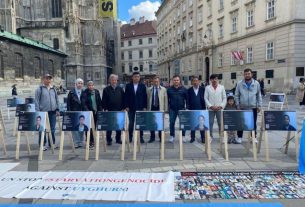Burgenland’s regional government has enacted strict new measures to regulate its asylum system, drawing both support and criticism across Austria. Under the leadership of Governor Hans Peter Doskozil, the policy ties welfare benefits for asylum seekers to community work and eliminates support for those with denied applications. This significant shift is intended to establish a “give-and-take” model that Doskozil has championed as fair and sustainable.
“If someone comes to us, it cannot be a one-way street. There must be a balance of give and take,” Doskozil asserted at the SPÖ Burgenland party congress in October. His stance has since been formalized through legislation, confirmed by a recent press release from the Burgenland SPÖ.
Key Provisions of the Policy
The newly implemented measures include:
- Work-for-Welfare Requirement: Able-bodied asylum seekers must engage in community or municipal work to receive basic welfare. A tiered sanction system penalizes those who refuse work, cutting off benefits entirely after two refusals.
- End of Support for Rejected Asylum Seekers: Individuals with negative asylum decisions will lose their benefits within a month, retaining access only to a one-time repatriation aid.
- Cap on Asylum Placements: Starting November, Burgenland will limit basic care spots to 330 annually, aligning with Doskozil’s proposed national cap of 10,000 asylum applications per year based on population share.
Doskozil has criticized Austria’s federal asylum policies, labeling them as ineffective and costly. He highlighted systemic failures, including the inability to deport up to 90% of those with finalized negative asylum rulings. This, he argued, undermines the rule of law and burdens state resources.
Public Backlash and National Debate
The policy has ignited heated debate across Austria, with critics decrying it as punitive and proponents lauding its practicality. Opponents argue that linking basic welfare to work violates humanitarian principles and risks alienating asylum seekers further, making integration more difficult. Supporters counter that the policy ensures accountability and fairness in resource allocation.
Doskozil remains steadfast, attributing Austria’s integration challenges to federal mismanagement. “The impacts of poor asylum policies are felt across schools, the job market, and public safety. Migration must be financially and socially sustainable—it’s a question of justice,” he stated.
Broader Implications
The policy positions Burgenland as a trailblazer in strict asylum governance, setting a precedent for other Austrian regions and potentially influencing national policy. Doskozil has pledged to implement practical solutions, even as the federal government grapples with over 22,000 asylum applications this year.
“We are taking control where we can. Burgenland will continue to uphold a resolute, rule-of-law approach,” he affirmed.
This bold move has deepened Austria’s ongoing debate over migration, raising questions about the balance between national security, humanitarian obligations, and resource management.





